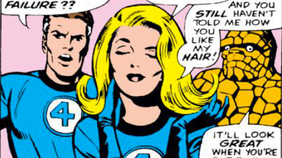Superman vs. Businessmen and Buildings
- Jan 26, 2015
- 2 min read
Reading the first eight Superman stories, I was surprised to see the beginnings of some things that I recognize from general Superman lore. There are vast differences between it, then and now, but it is easy to recognize the forerunners of many mainstays within Superman’s general history.
Most prominently, I found was the general inspirations for what would become Lex Luthor. Superman’s arch nemesis did not get his start at the same time as the Man of Steel, but even from his very beginnings, I found it intriguing that Superman dealt more with corrupt business moguls than he did with more violent criminals.
The seventh panel of the first page, in the very first issue, touts Superman as a “champion of the oppressed.” And henceforth, the readers are shown Superman as he challenges various fat cats that are taking advantage of those beneath them. One adventure, in the July 1938 issue, sees Superman forcing a munitions tycoon into joining a war (fought with weaponry manufactured by the man’s company). After witnessing the horror of war, the businessman declares, “I’ve grown to hate war--! … From now on, the most dangerous thing I’ll manufacture will be a firecracker!” (The Superman Chronicles, 29, panels 2-3).
His next adventure sees him confront the owner of an unsafe mine in order to make it safer for workers. To do this, he traps the man and some party guests in the mine, only to rescue them after they have fainted from exhaustion. Having survived this ordeal, the owner of the mine proclaims that he’ll get his mine up to code.
Superman, in his earliest incarnation tackles only one kind of oppression. His efforts tend to be focused to the plights of the workingman. As he began during the Great Depression, this focus makes sense. Jerry Siegel gives his readers the kind of hero that they would want to have in their lives. However, when he moves his focus away from corrupt businessmen, the results border between hilarious and horrifying. This is particularly evident in the January 1939 issue, in which Superman helps a gang of delinquent boys.
In his efforts to turn the boys away from crime, Superman comes to the conclusion that the boys’ poor environment (the slums) is to blame for their misbehavior. He then chooses to destroy the slums in hopes of forcing the government to rebuild the homes. While it is effective in the comics, Superman’s solution to this issue is horrifically naïve.

Any sane person could see that destroying a population’s homes would not make their situation any better. However, as Richard Reynolds writes in “Masked Heroes,” in early comics such as this, “The weight of moral decisions and their preferred interpretation are clearly inscribed in the construction of the narrative,” (The Superhero Reader, 113). Superman’s decision to destroy the slums is presented as good, and we are meant to think that his decision was a good one, no matter how problematic it might actually be.




















Comments